As I mentioned earlier before, one of the main reasons for me to come to Manado was to visit the Bunaken National Marine Park. I wanted to get my diving license, but for one other reason I decided not to and traveled around North Sulawesi instead.
I did manage to have a day trip to Bunaken and snorkeled around Liang Beach area. The corals were white (I assume it's dead due to ocean acidification), but there were many fishes swimming around the area and you can feed them while you snorkel. The better looking corals were deep down, and you can basically see a wall filled with corals and other marine life ~ which actually prompted me to really get my diving license soon.
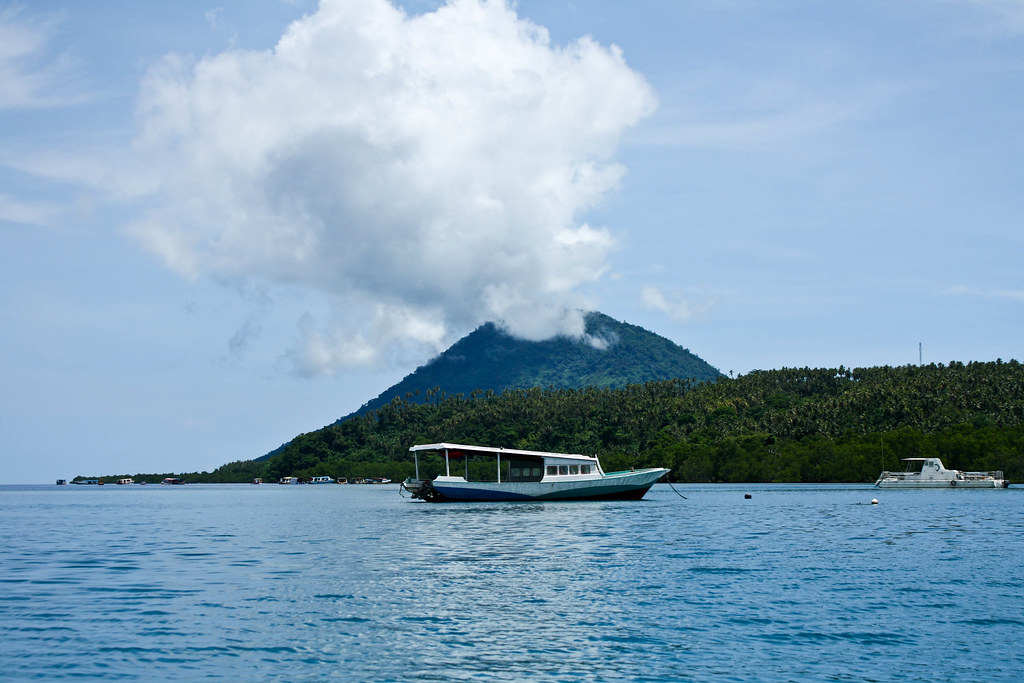
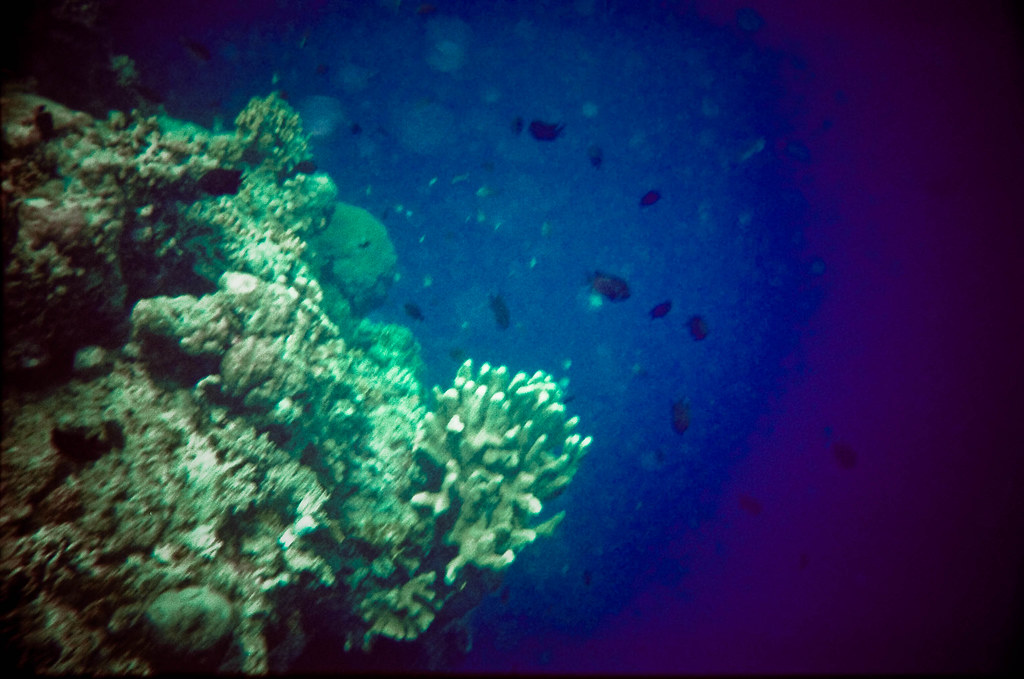
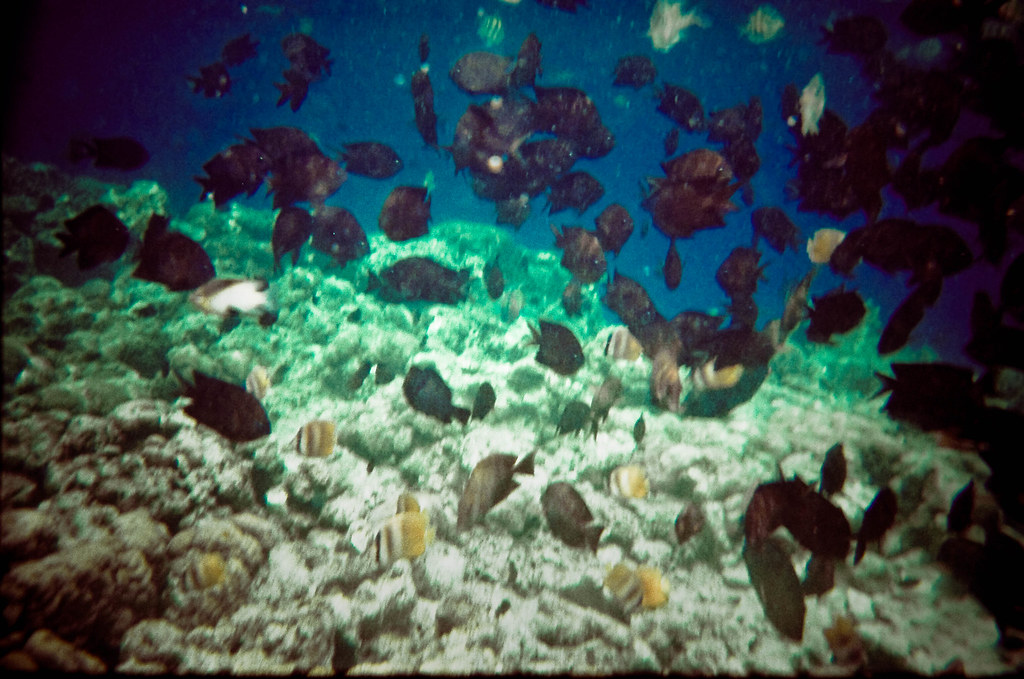
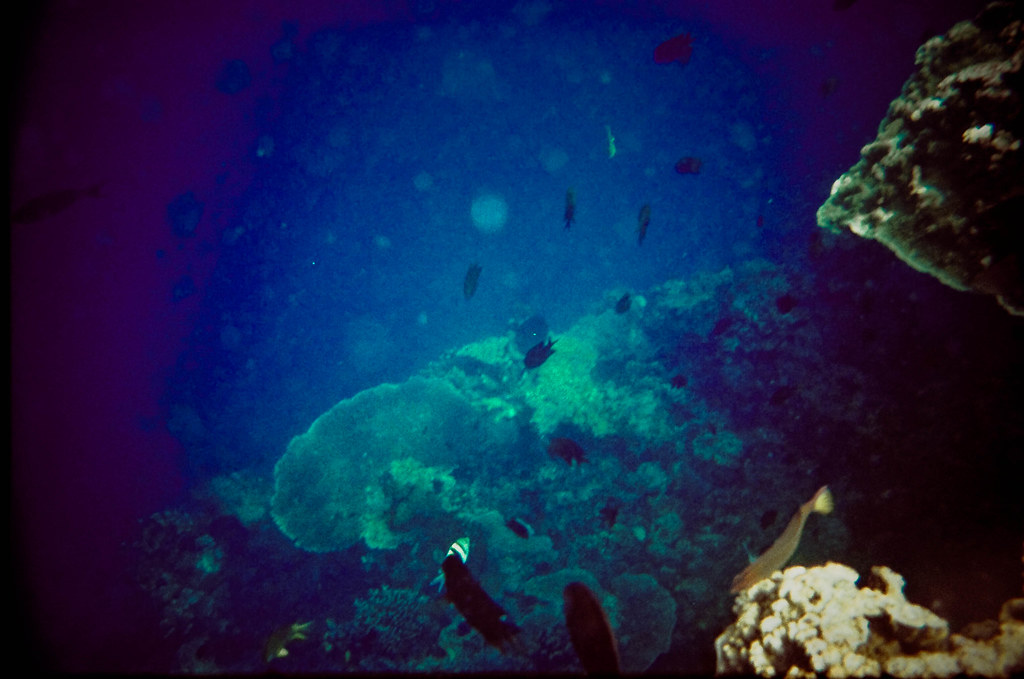
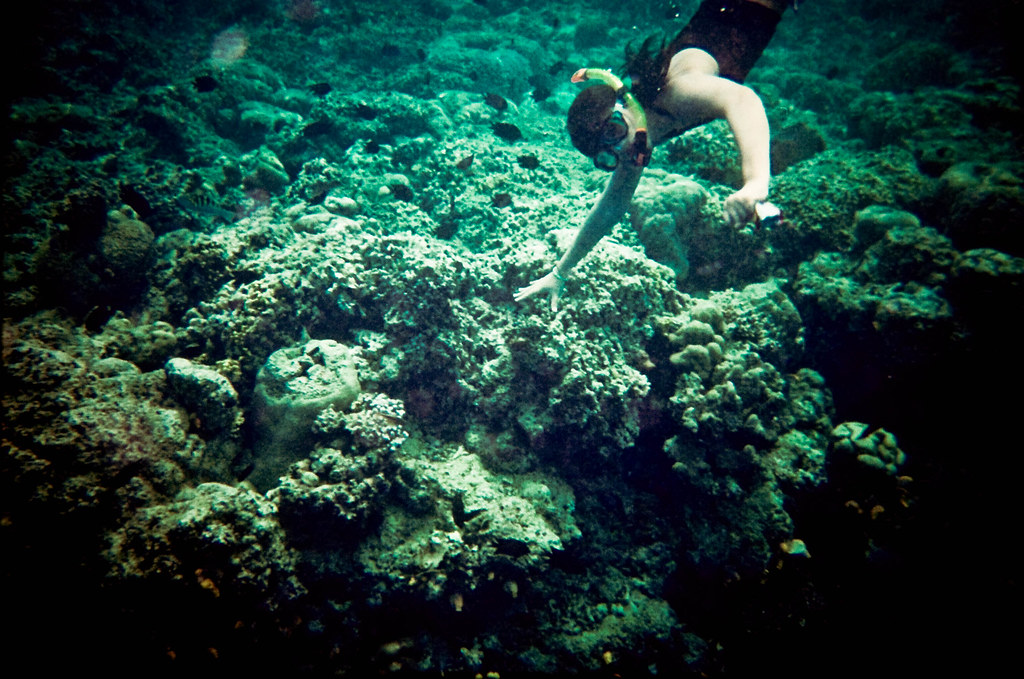
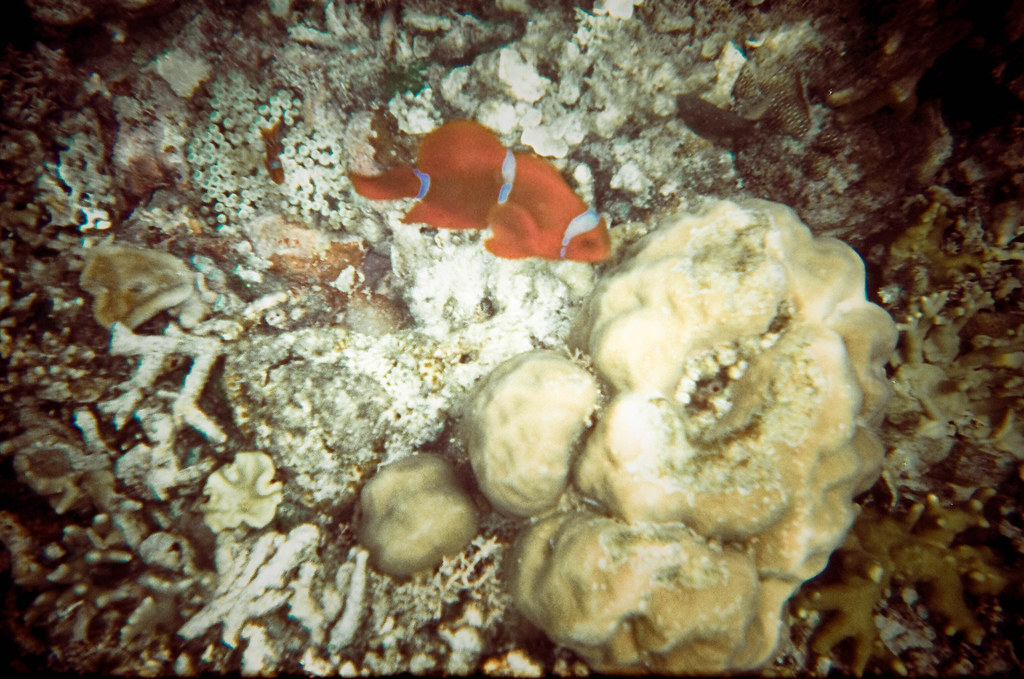
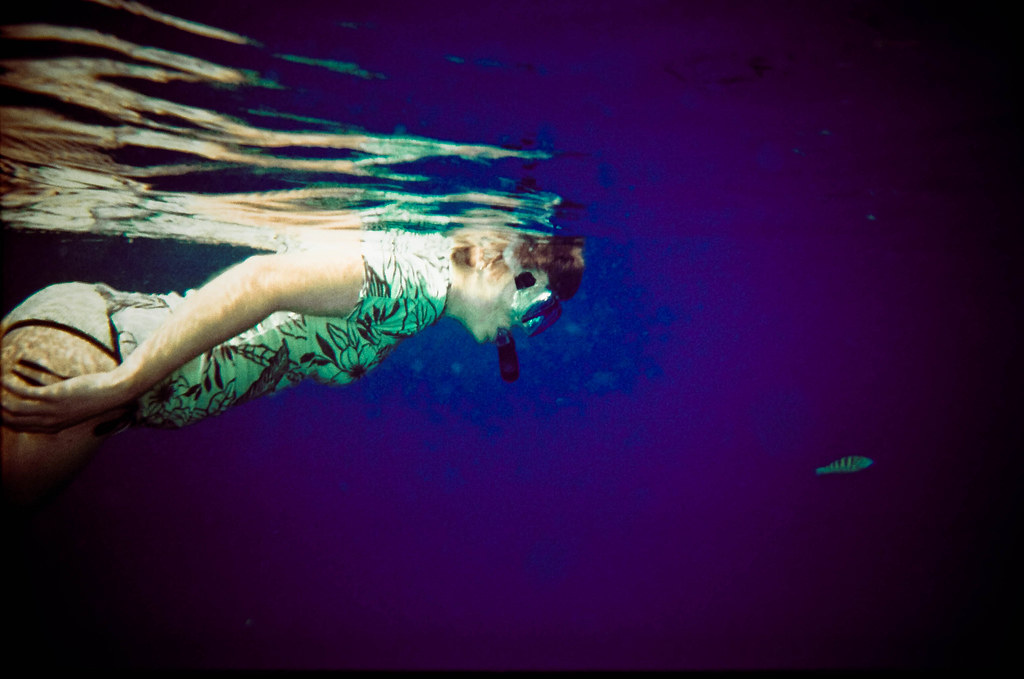
2 comments:
Where the hell did you get "it's dead due to ocean acidification"? If you don't have any clue about coral reefs and oceans, do not assume.
And BTW it's Liang, not Lisang Beach.
Dear Anonymous,
My mistake, I will correct the name from Lisang to Liang.
On the point of ocean acidification, it was based on my discussion with a friend that it's a pity that Bunaken corals were not as colorful as they seemed to be. Although a colleague of mine said that if you go diving to some other parts of Bunaken, the marine life is still superb, so maybe just in Liang it is not as good as what we hoped for.
The reason why I come to the conclusion of ocean acidification is because most coral bleaching is caused by, among others, rising sea temperature and solar irradiance [1]. There are other factors of course, but my concern is that climate change may play a role in the increase of coral bleaching events, because the oceans are more acidic as a result of carbon dioxide emissions associated with human activities (not by natural causes - but most climate skeptics would also debate on this). The increase of the ocean's acidity will thus affect the calcium carbonate saturation in ocean waters, thereby making this building block of shells ans skeletons less available which affects the health of corals and other marine organisms [2].
I'm not a scientist, I'm just an ordinary travel-photoblogger. However, most scientists do their assumptions, conduct their research, and find out whether their assumptions are correct or not. So I guess it is not entirely wrong for me to have my own assumptions, which is better than for me saying that it is a fact (because it is open for debate such as this).
It would be nice to hear your point of view why the corals in Bunaken are getting white, and telling me your name so we can have a healthy discussion.
Cheers,
FF
[1] http://www.marinebiology.org/coralbleaching.htm
[2] http://www.epa.gov/climatechange/science/recentoa.html
Post a Comment